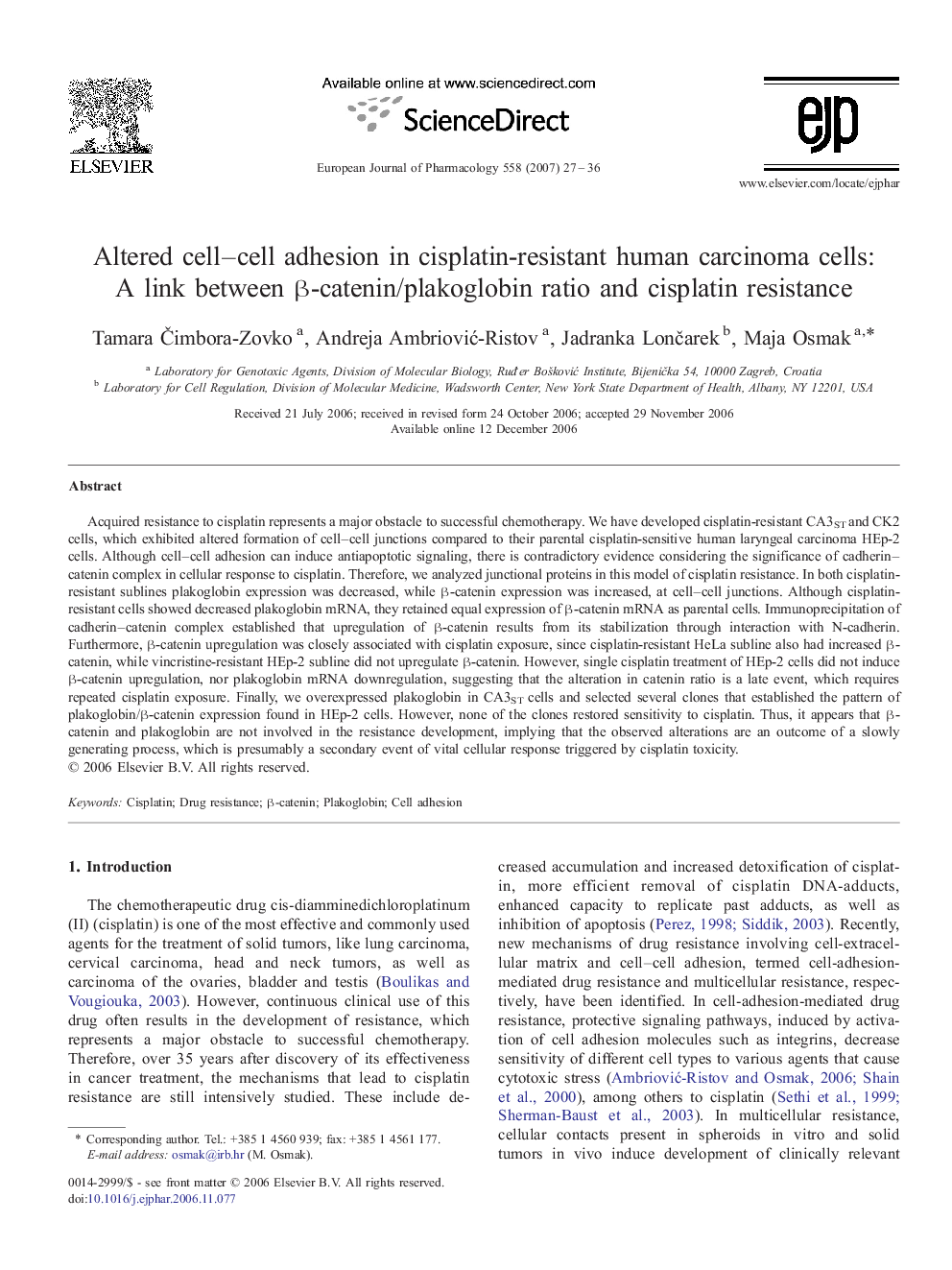| Article ID | Journal | Published Year | Pages | File Type |
|---|---|---|---|---|
| 2536475 | European Journal of Pharmacology | 2007 | 10 Pages |
Acquired resistance to cisplatin represents a major obstacle to successful chemotherapy. We have developed cisplatin-resistant CA3ST and CK2 cells, which exhibited altered formation of cell–cell junctions compared to their parental cisplatin-sensitive human laryngeal carcinoma HEp-2 cells. Although cell–cell adhesion can induce antiapoptotic signaling, there is contradictory evidence considering the significance of cadherin–catenin complex in cellular response to cisplatin. Therefore, we analyzed junctional proteins in this model of cisplatin resistance. In both cisplatin-resistant sublines plakoglobin expression was decreased, while β-catenin expression was increased, at cell–cell junctions. Although cisplatin-resistant cells showed decreased plakoglobin mRNA, they retained equal expression of β-catenin mRNA as parental cells. Immunoprecipitation of cadherin–catenin complex established that upregulation of β-catenin results from its stabilization through interaction with N-cadherin. Furthermore, β-catenin upregulation was closely associated with cisplatin exposure, since cisplatin-resistant HeLa subline also had increased β-catenin, while vincristine-resistant HEp-2 subline did not upregulate β-catenin. However, single cisplatin treatment of HEp-2 cells did not induce β-catenin upregulation, nor plakoglobin mRNA downregulation, suggesting that the alteration in catenin ratio is a late event, which requires repeated cisplatin exposure. Finally, we overexpressed plakoglobin in CA3ST cells and selected several clones that established the pattern of plakoglobin/β-catenin expression found in HEp-2 cells. However, none of the clones restored sensitivity to cisplatin. Thus, it appears that β-catenin and plakoglobin are not involved in the resistance development, implying that the observed alterations are an outcome of a slowly generating process, which is presumably a secondary event of vital cellular response triggered by cisplatin toxicity.
